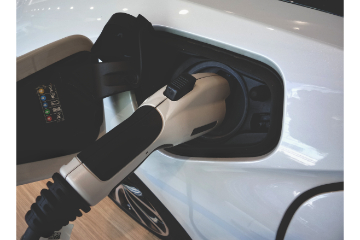Table of Contents

Welcome to our overview on the recently by the Council adopted regulation on batteries and waste batteries. In this article, we will delve into the details of this important regulation, its implications, and how it aims to address key challenges in the battery industry. As experts in the field, the Dutch specialist attorneys of MAAK advocaten, specialized in Product Compliance, understand the significance of this regulation and its potential impact on businesses and the environment. Let’s explore the key aspects and benefits of the new regulation, ensuring compliance and sustainable practices in battery management.
Understanding the New Regulation on Batteries
The Council’s new regulation on batteries and waste batteries represents a landmark development in battery-related legislation. With a focus on sustainability, circular economy principles, and environmental protection, this regulation aims to address the growing concerns associated with battery production, use, and disposal. By establishing a comprehensive framework, it provides a roadmap for manufacturers, users, and recyclers to adopt responsible practices throughout the lifecycle of batteries.
Key Objectives
1. Promoting Environmental Sustainability
The new regulation places a strong emphasis on promoting environmental sustainability in the battery industry. It encourages manufacturers to design batteries with a reduced environmental footprint, ensuring the efficient use of resources and minimizing the use of hazardous substances. By setting strict eco-design requirements, the regulation stimulates innovation and drives the development of greener battery technologies.
2. Enhancing Resource Efficiency
Recognizing the importance of efficient resource management, the regulation encourages the adoption of circular economy principles in battery production and waste management. It aims to increase the collection and recycling rates of waste batteries, enabling the recovery of valuable materials and reducing the reliance on virgin resources. Through extended producer responsibility schemes, manufacturers are incentivized to take ownership of the entire lifecycle of their batteries, from production to disposal.
3. Ensuring Safety and Consumer Protection
Safety is a paramount concern when it comes to batteries. The new regulation includes stringent safety requirements for battery production, ensuring that consumers are protected from potential hazards. It promotes the development of standards for safer battery technologies and establishes guidelines for product labeling, providing users with essential information on handling, storage, and disposal. These measures aim to build consumer trust and confidence in battery products.
Key Provisions
1. Product Design and Manufacturing
The regulation sets out specific requirements for battery design and manufacturing processes. Manufacturers must consider the entire lifecycle of batteries, from material sourcing to end-of-life treatment. The regulation promotes the use of sustainable materials, encourages modular and easily recyclable designs, and emphasizes energy efficiency. By incorporating these provisions, the industry can foster the development of batteries that are both environmentally friendly and technologically advanced.
2. Collection and Recycling
To address the challenge of waste batteries, the new regulation introduces ambitious targets for collection and recycling rates. It mandates member states to establish adequate collection systems, ensuring that consumers can easily return their used batteries for proper recycling. Additionally, the regulation promotes the establishment of specialized recycling facilities, employing advanced technologies to recover valuable materials from waste batteries. By enhancing the efficiency of recycling processes, valuable resources can be conserved, reducing the environmental impact of battery disposal.
3. Traceability and Reporting
Traceability is a key aspect of the new regulation, aiming to establish a transparent supply chain for batteries. Manufacturers are required to ensure the traceability of their products, enabling effective monitoring of their lifecycle and facilitating the implementation of extended producer responsibility schemes. Furthermore, the regulation introduces reporting obligations for manufacturers, providing valuable data on battery production, sales, and recycling. This data will enable authorities to assess compliance, identify areas for improvement, and make informed policy decisions.
Conclusion
The new regulation on batteries and waste batteries marks a significant step in promoting sustainable practices in the battery industry. By emphasizing environmental sustainability, resource efficiency, and safety, this regulation intends to create a framework that encourages innovation and responsible behavior. Manufacturers, users, and recyclers are required to embrace the requirements outlined in the regulation to ensure a greener and more sustainable future for the battery sector. By doing so, the regulation intends to minimize the environmental impact of batteries, protect consumer interests, and contribute to a circular economy where resources are efficiently utilized. In essence, the regulation intends to lead the way towards a cleaner and more sustainable battery industry.
Contact our Dutch Product Compliance Lawyers
If you have any questions or require legal assistance about the new Regulation on Batteries and Waste Batteries, please don’t hesitate to reach out to our knowledgeable and dedicated team at our Dutch law firm. Our Dutch lawyers are committed to providing exceptional legal services and personalized attention to address your unique needs. You can contact us through our website, via email, or by phone. Our friendly and professional staff will be more than happy to assist you and schedule a consultation with one of our expert attorneys in the Netherlands, for example a Dutch litigation attorney or contract lawyer in the Netherlands in Amsterdam. We look forward to the opportunity to help you navigate the complexities of the legal landscape and achieve the best possible outcomes for your case.
Contact person: Martin Kruger | attorney-at-law
Office number: +31 (0)20 – 210 31 38
martin.kruger@maakadvocaten.nl
*Please note that the content provided here is for informational purposes only and should not be considered legal or professional advice. For accurate and up-to-date information, we recommend referring to the official documentation and consulting with legal experts.*

